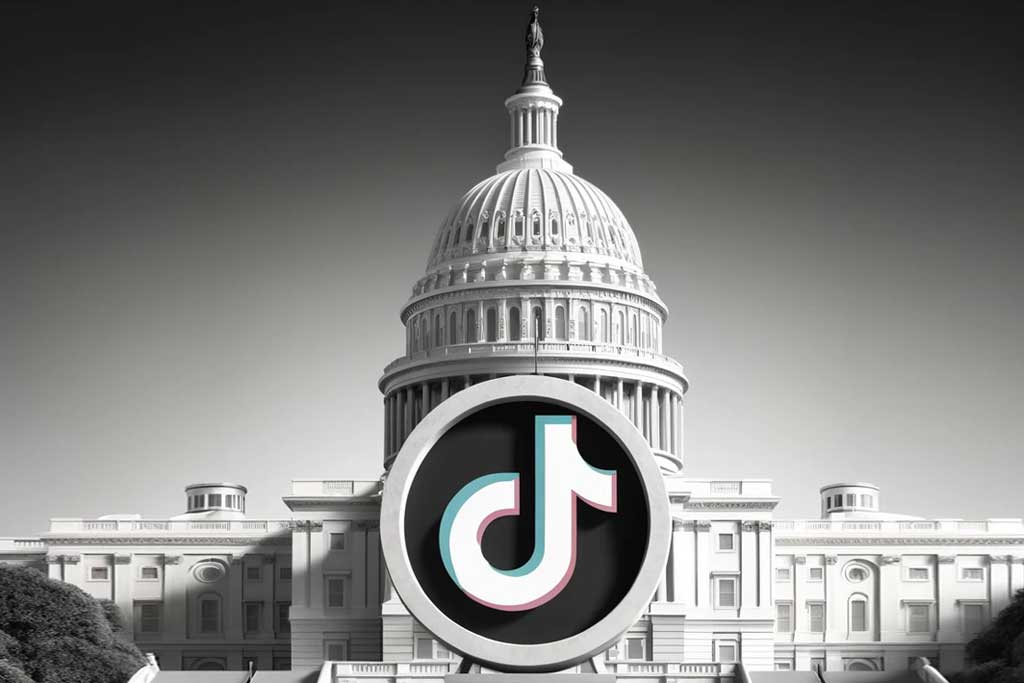TikTok has fired back against the United States government with a legal challenge to thwart a nationwide ban. On Tuesday, May 7, 2024, TikTok sued Uncle Sam over a new law forcing its Chinese parent company, ByteDance, to divest or face an outright ban.
The Roots of the Conflict
The controversy surrounding TikTok is deeply intertwined with broader geopolitical tensions between the U.S. and China, focusing predominantly on issues of national security, data privacy, and digital sovereignty. U.S. lawmakers have expressed concerns that the Chinese government could potentially access user data collected by TikTok or manipulate the platform to disseminate propaganda. Such apprehensions were amplified by revelations that the Chinese government holds a minority stake in ByteDance and possesses significant influence over the company.
Last month, in response to these concerns, the U.S. government, under the Biden administration, has pushed forward with legislation that mandates ByteDance to relinquish its ownership of TikTok’s U.S. operations or face a total ban on the app within the country. President Biden has already signed off on part of this legislation, with further discussions and modifications expected as it progresses through the Senate. In this unprecedented step, the US government gave the social media platform a 270-day timeline to divest or face a shutdown of TikTok.
Read more about the legislation here.
TikTok’s Defense
The social media company has vehemently opposed the U.S. government’s claims, arguing that it has very good reason to do so and implemented extensive measures to protect user data from foreign access. The company asserts that it has restructured its data security management and business operations to create a clear separation from its Chinese parent company. TikTok’s efforts include storing U.S. user data on servers located within the United States and overseen by American personnel, among other security enhancements.
The commitment to US national security has been named Project Texas and states, “Put simply, Project Texas is an unprecedented initiative dedicated to making every American on TikTok feel safe, with confidence that their data is secure and the platform is free from outside influence. We’ve spent the last two years developing a framework through discussions with the Committee on Foreign Investment in the United States (CFIUS), and we’ve spent roughly $1.5 billion to date on implementation. Project Texas puts the concepts of transparency and accountability into action by addressing national security concerns head-on with concrete, measurable solutions.”
“For the first time in history, Congress has enacted a law that subjects a single, named speech platform to a permanent, nationwide ban, and bars every American from participating in a unique online community with more than 1 billion people worldwide,” the lawsuit states.
Furthermore, TikTok has been actively engaging with U.S. lawmakers, aiming to educate them about the platform and its security practices. The popular video-sharing app has also launched a public relations campaign to rally support from its user base, which includes over 150 million Americans. This approach underscores TikTok’s strategy to leverage its popularity as a means of influencing public and political opinion.
Legal Arguments and Potential Outcomes
TikTok’s lawsuit against the U.S. government centers on several key legal arguments. First, the company contends that such divestiture and potential ban constitute an unconstitutional assertion of power by the government and violate principles of free market competition, free speech, and freedom of expression. Citing clear violations of First Amendment rights, TikTok may also argue that the actions are discriminatory, as they specifically target a Chinese-owned company while similar concerns applicable to companies from other countries are seemingly overlooked.
The outcome of this legal battle is uncertain and hinges on a complex interplay of legal, political, and public opinion factors. Historically, U.S. courts have upheld government actions when framed within the context of protecting Americans and minimizing national security risk from repressive regimes. However, the unique global reach and immense popularity of TikTok, combined with its efforts to comply with U.S. regulations, present an unprecedented challenge to straightforward legal precedents. In addition, the bipartisan nature of this federal law only solidifies an already strong case to protect the American people.
Implications for the Tech Industry and U.S.-China Relations
The resolution of this lawsuit will likely have far-reaching implications not only for TikTok and its users but also for the broader tech industry and international relations. A decision forcing TikTok to divest could set a precedent for how other foreign-owned tech companies are treated in the U.S., potentially leading to increased regulatory scrutiny and operational challenges for international tech firms.
Former President Donald Trump tried to legislate a TikTok ban while in office through an executive order that failed in 2020. However, now he is singing a different tune. “There are a lot of people on TikTok that love it. There are a lot of young kids on TikTok who will go crazy without it,” Trump told CNBC News, saying that without TikTok “you can make Facebook bigger and I consider Facebook to be an enemy of the people. I think Facebook has been very bad for our country, especially when it comes to elections.”
Moreover, this case is a focal point in the broader U.S.-China technological and trade rivalry, reflecting deeper conflicts over technological supremacy and digital governance. The outcome could either exacerbate tensions or provide a blueprint for resolving similar disputes in the future.
What Lies Ahead
As TikTok’s lawsuit against the U.S. government unfolds, it will be closely watched by policymakers, business leaders, and millions of users across the globe. The case not only challenges the traditional boundaries of national security and economic interests but also tests the resilience of global internet governance frameworks in the face of rapidly evolving digital landscapes. Regardless of the outcome, this legal battle will undoubtedly shape the future interactions between global technology companies and government regulators.


